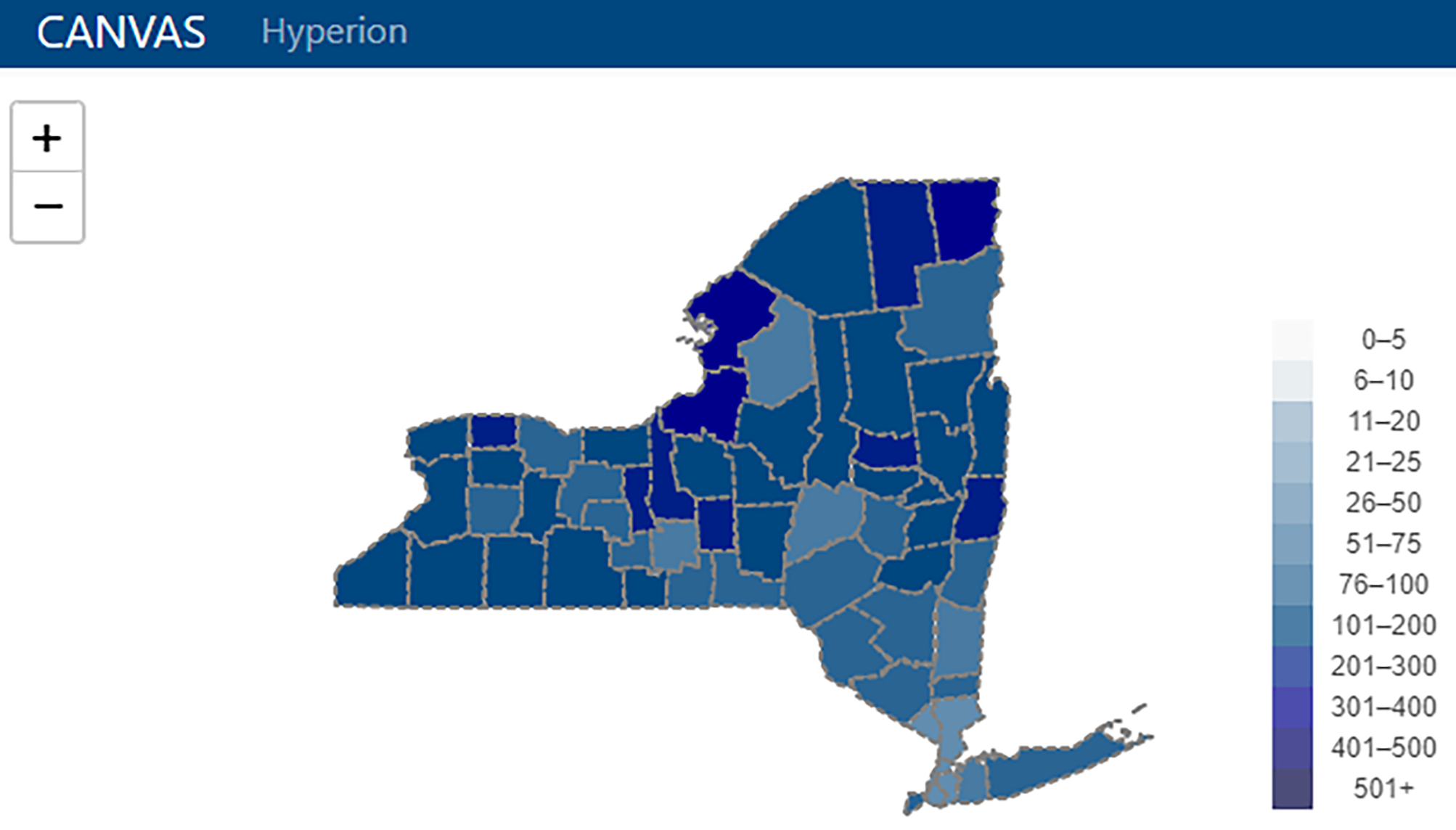Difference between revisions of "Template:Article of the week"
Shawndouglas (talk | contribs) (Updated article of the week text.) |
Shawndouglas (talk | contribs) (Updated article of the week text) |
||
| Line 1: | Line 1: | ||
<div style="float: left; margin: 0.5em 0.9em 0.4em 0em;">[[File: | <div style="float: left; margin: 0.5em 0.9em 0.4em 0em;">[[File:Fig3 Snyder PLOSDigHlth22 1-11.png|240px]]</div> | ||
'''"[[Journal: | '''"[[Journal:From months to minutes: Creating Hyperion, a novel data management system expediting data insights for oncology research and patient care|From months to minutes: Creating Hyperion, a novel data management system expediting data insights for oncology research and patient care]]"''' | ||
Ensuring timely access to accurate data is critical for the functioning of a [[cancer]] center. Despite overlapping data needs, data are often fragmented and sequestered across multiple systems (such as the [[electronic health record]] [EHR], state and federal registries, and research [[database]]s), creating high barriers to data access for clinicians, researchers, administrators, quality officers, and patients. The creation of [[System integration|integrated data systems]] also faces technical, leadership, cost, and human resource barriers, among others. The University of Rochester's James P. Wilmot Cancer Institute (WCI) hired a small team of individuals with both technical and clinical expertise to develop a custom [[Information management|data management]] software platform—Hyperion— addressing five challenges: lowering the skill level required to maintain the system, reducing costs, allowing users to access data autonomously, optimizing [[Information security|data security]] and utilization, and shifting technological team structure to encourage rapid innovation ... ('''[[Journal:From months to minutes: Creating Hyperion, a novel data management system expediting data insights for oncology research and patient care|Full article...]]''')<br /> | |||
''Recently featured'': | ''Recently featured'': | ||
{{flowlist | | {{flowlist | | ||
* [[Journal:Health data privacy through homomorphic encryption and distributed ledger computing: An ethical-legal qualitative expert assessment study|Health data privacy through homomorphic encryption and distributed ledger computing: An ethical-legal qualitative expert assessment study]] | |||
* [[Journal:Avoidance of operational sampling errors in drinking water analysis|Avoidance of operational sampling errors in drinking water analysis]] | * [[Journal:Avoidance of operational sampling errors in drinking water analysis|Avoidance of operational sampling errors in drinking water analysis]] | ||
* [[Journal:ISO/IEC 17025: History and introduction of concepts|ISO/IEC 17025: History and introduction of concepts]] | * [[Journal:ISO/IEC 17025: History and introduction of concepts|ISO/IEC 17025: History and introduction of concepts]] | ||
}} | }} | ||
Revision as of 15:24, 26 June 2023
Ensuring timely access to accurate data is critical for the functioning of a cancer center. Despite overlapping data needs, data are often fragmented and sequestered across multiple systems (such as the electronic health record [EHR], state and federal registries, and research databases), creating high barriers to data access for clinicians, researchers, administrators, quality officers, and patients. The creation of integrated data systems also faces technical, leadership, cost, and human resource barriers, among others. The University of Rochester's James P. Wilmot Cancer Institute (WCI) hired a small team of individuals with both technical and clinical expertise to develop a custom data management software platform—Hyperion— addressing five challenges: lowering the skill level required to maintain the system, reducing costs, allowing users to access data autonomously, optimizing data security and utilization, and shifting technological team structure to encourage rapid innovation ... (Full article...)
Recently featured:










